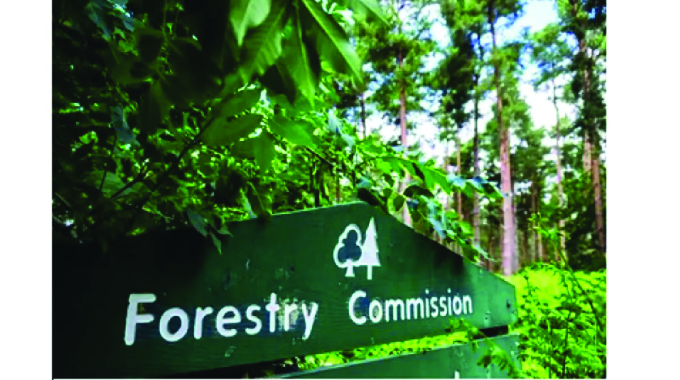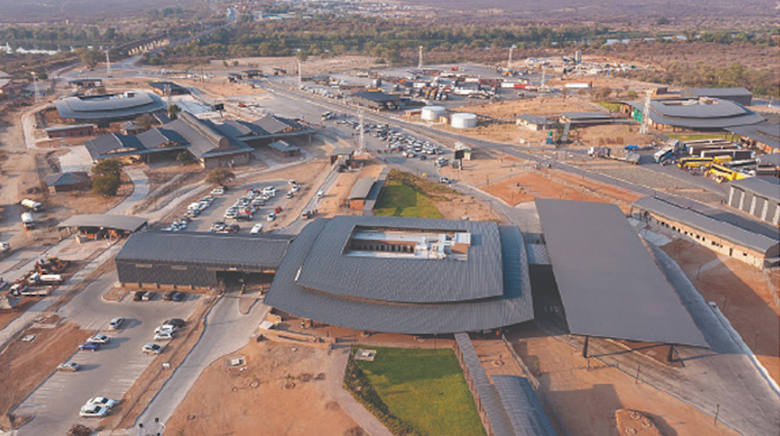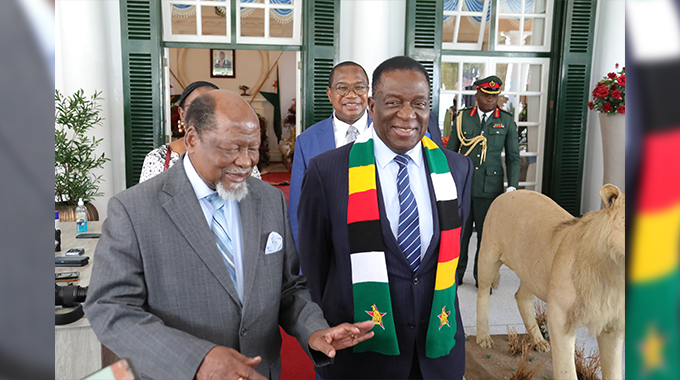Forestry Commission sets this year’s trees target

Sukulwenkosi Dube-Matutu, Matabeleland South Bureau Chief
THE Forestry Commission has set a target to plant about 20 million trees across the country this year with the major focus on urban areas under the “Beautification of Cities and Towns — Green Movement Initiative”.
Government has initiated the green initiative programme through urban re-afforestation.

Forestry Commission
In the wake of climate change, urban forestry can provide opportunities for implementing nature-based solutions into cities and towns.
The Beautification of Cities and Towns initiative is set to be officially launched by President Mnangagwa next month.
In an interview Forestry Commission general manager, Mr Abedinigo Marufu, said the 20 million target could be achieved if people take planting of trees as a regular practice.

President Mnangagwa
“Most of the tree planting over the past years has been taking place in rural areas but this time around we will focus more on urban areas,” he said.
“This will help to enhance the ‘Beautification of Cities and Towns — green movement initiative’. We are targeting plus or minus 20 million trees this year but it will even be better if we can get to 30 million trees.
“We have about 200 venues where people are going to gather to mark the National Tree Planting Day, which will be on 3 December. We have engaged local authorities across the country so that they can come on board and make the beautification of cities initiative a success. Trees will be planted along roads, institutions such as schools, in parks and houses in urban areas.”
Mr Marufu said this year different stakeholders will be roped in to promote planting of trees with institutions such as churches also being urged to embrace the drive.
“We are also working on a target to have rehabilitated two million hectares of land by 2030 and protecting our land from further damage,” he said.
“We are working closely with to ensure that farmers practice smart farming as farming is one of the major causes of land degradation. All these efforts will help us in mitigating climate change.”

The Forestry Commission is working with various stakeholders and local authorities to spearhead the beautification of cities project with the main objective of decorating Zimbabwe, reducing urban carbon footprints and enhancing ecosystem services.
Experts say planting trees for beautification reduces air pollution, improves water storage, reduces noise, enhances aesthetics, creates recreation areas, and cools urban areas.
The impact of all this is improved human and animal well-being of urban communities. Planting trees in urban areas is generally governed by the “3-30-300” rule, which identifies the minimum requirement for tree planting.
The rule stipulates that in an urban environment, each resident should be able to see at least three trees from their homes, each neighbourhood should have 30 percent tree canopy coverage, and the distance from a high-quality public green space should not exceed 300 meters.
Population growth in urban areas has resulted in increased urbanisation due to demand for space for houses and infrastructure, resulting in increased tree cutting.
The loss and degradation of urban forests or green spaces adversely affects the ecosystem and consequently human lives. Deforestation associated with urban sprawl results in loss of biodiversity and degradation of watersheds, which leads to lower water quality and more floods.
The country is losing 262 349 ha of forest land to deforestation each year. Deforestation and subsequent land degradation are a threat to millions of people in Zimbabwe and around the world affecting livelihoods and food security.

Agritex
The major drivers of deforestation are clearing land for agriculture, settlement expansion, wood energy, mining activities and veld fires among others.
Zimbabwe has set aside the first Saturday of every December to be the national tree planting day. The day is set aside to motivate the nation to plant and conserve trees, to enlighten the nation on the importance of forests and to mitigate the impacts of climate change.
This year’s commemorations will be held at Lundi Primary School in Zvishavane on December 4 at an event, which will be graced by President Mnangagwa. – @DubeMatutu











Comments